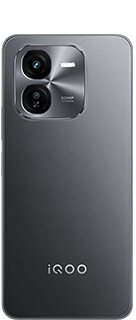Upcoming technology Robotics and Automation in 2025
Pictures

Details
Robotics and Automation in 2025: Key Developments and Applications
Robotics and automation are set to transform multiple industries by 2025, enabling machines to handle complex tasks that traditionally required human intervention. Here’s a closer look at emerging trends in this field:
1. Advanced Multitasking Robots
Robots in 2025 will be capable of performing diverse tasks across sectors such as manufacturing, healthcare, and hospitality. These robots will adapt to changing environments, making them invaluable in roles like industrial inspections, surgical assistance, and customer service.
2. Collaborative Robots (Cobots)
Cobots are designed to work alongside humans, enhancing productivity without replacing the workforce. In sectors like automotive assembly, cobots will handle repetitive tasks, allowing human workers to focus on complex, decision-making roles.
3. Autonomous Delivery and Logistics
Automated robots will revolutionize logistics by managing tasks such as warehouse sorting, last-mile delivery, and inventory management. Companies like Amazon and DHL are already deploying autonomous mobile robots (AMRs) to improve operational efficiency.
4. Service Robots in Healthcare and Hospitality
Healthcare robots will assist in surgeries, patient monitoring, and elderly care, while hospitality robots will manage check-ins, room service deliveries, and concierge services. These applications aim to enhance customer experience while reducing operational costs.
5. Agriculture and Food Production Automation
Robots will handle planting, harvesting, and food processing, improving productivity and reducing labor dependency. Autonomous tractors, drone-based crop monitoring, and robotic harvesters will become common.
6. Military and Security Robots
Autonomous drones and robotic surveillance systems will enhance national security and emergency response capabilities. These robots will perform tasks such as reconnaissance, bomb disposal, and disaster recovery.
Robotics and automation will reshape the future by driving efficiency, reducing operational costs, and enabling precision in critical sectors. These technologies will play a pivotal role in shaping smart cities, advancing healthcare, and automating industrial production.
Thank you
Your Qool Quester
Ayush pandey
Please sign in
Login and share
























